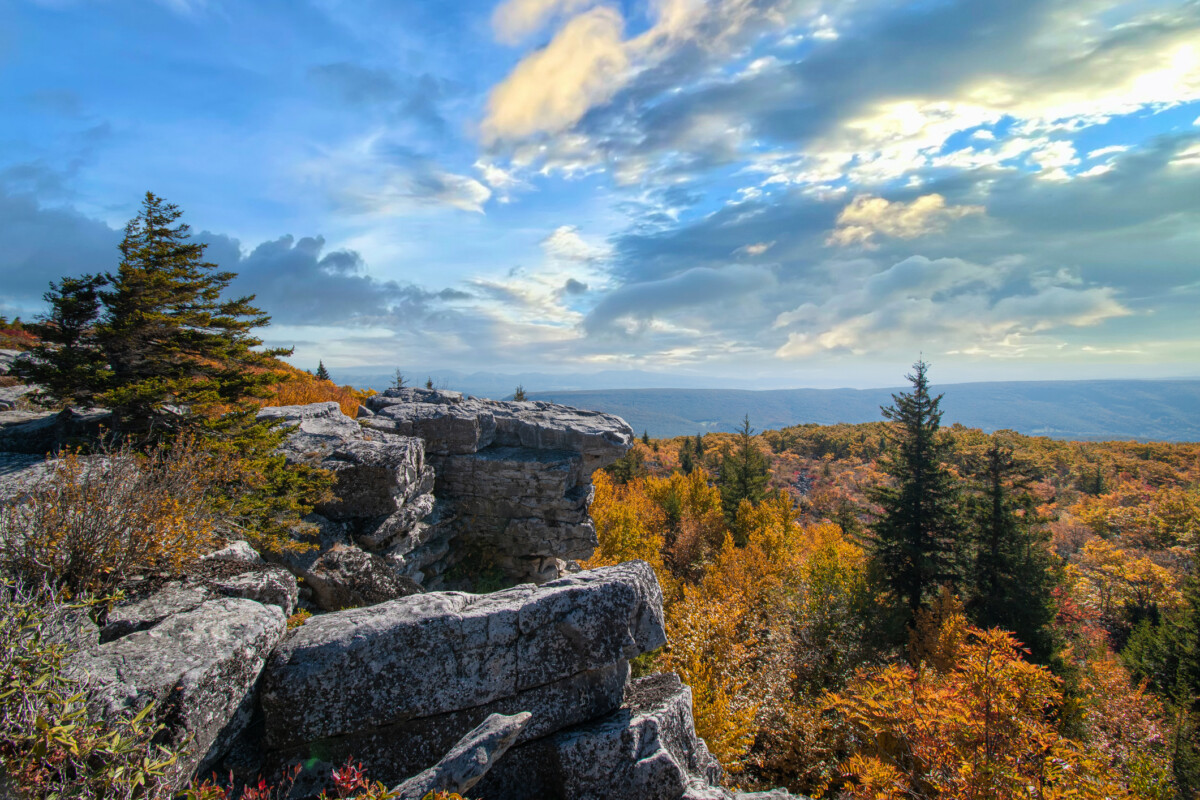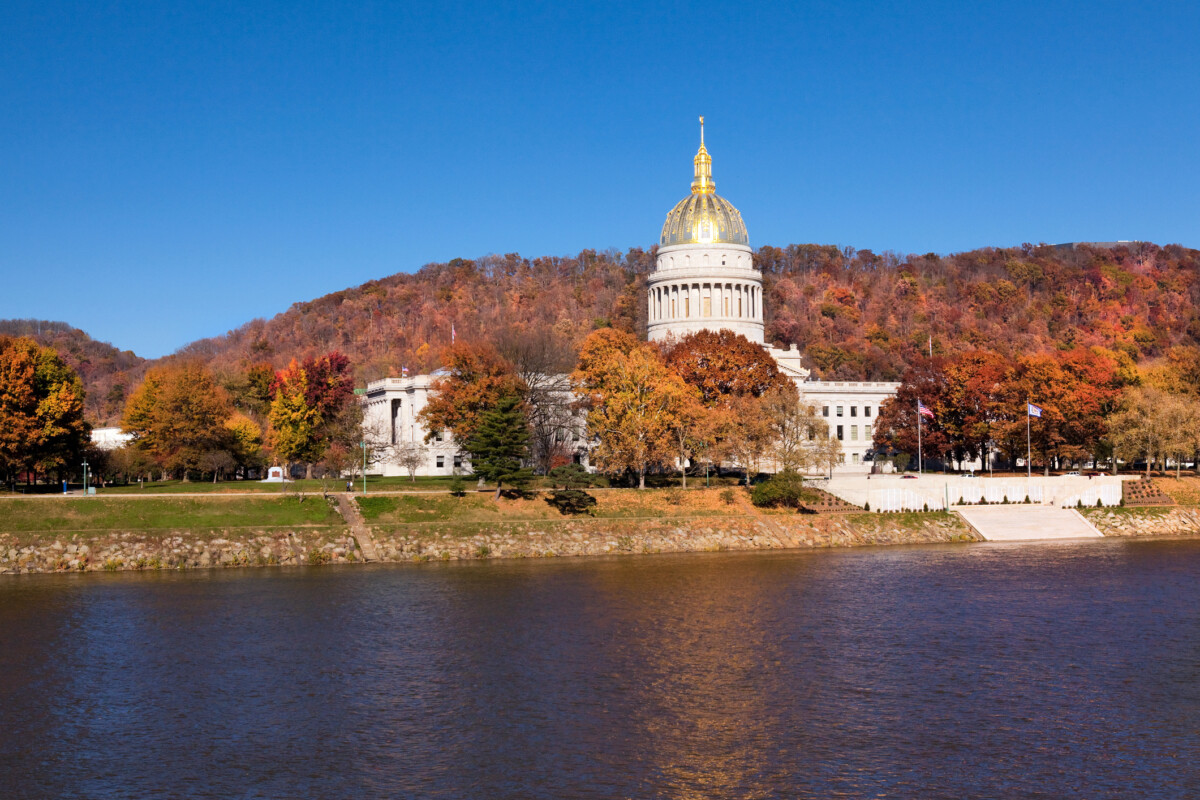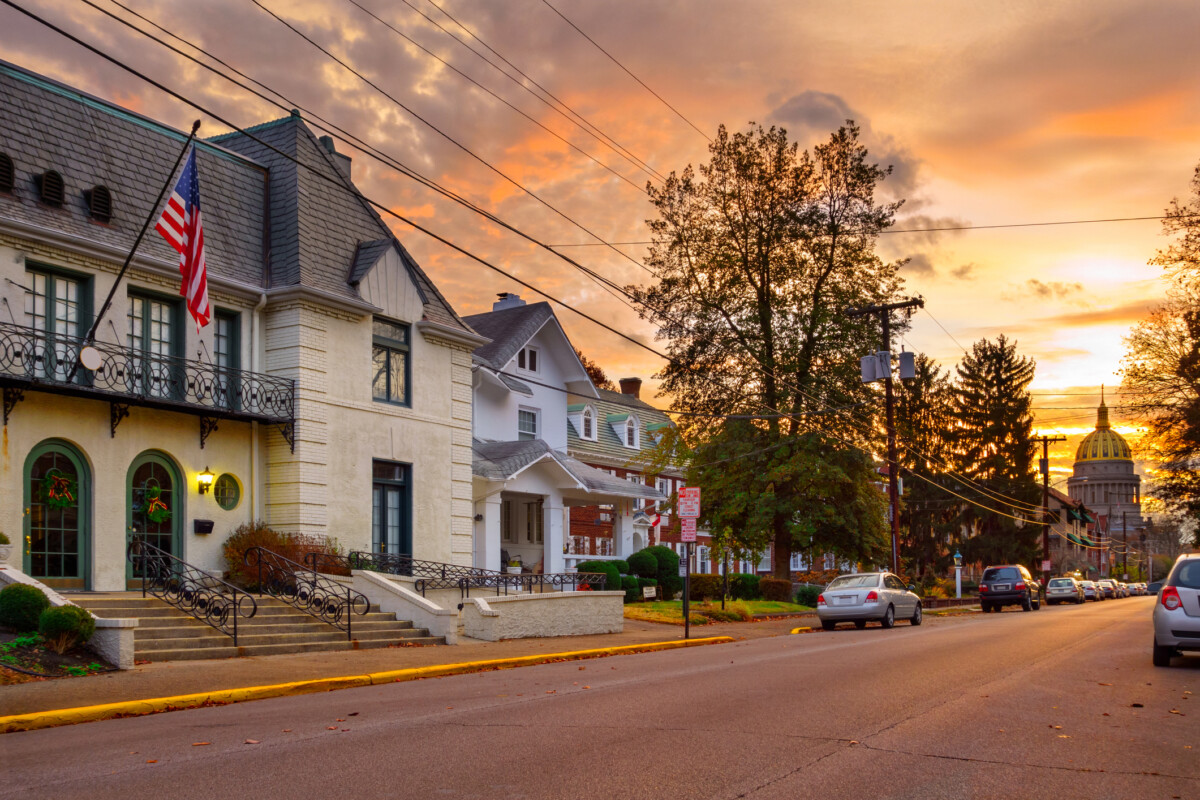Living in West Virginia offers a unique experience characterized by lush landscapes and deep-rooted Appalachian culture. Situated in the heart of the Appalachian Mountains, the state provides residents with a charming mix of natural beauty, rich history, and a down-to-earth lifestyle. From the colorful rolling hills and dense forests that transform with each season, West Virginia embodies a harmonious blend of tradition and modernity. However, like any place, there are both advantages and disadvantages to calling West Virginia home. Whether you are interested in finding distinctive properties for sale in Martinsburg, renting apartments in Harpers Ferry, or simply exploring the state, read on for a comprehensive list of the pros and cons of living in West Virginia.
Considering a move to West Virginia? Take a look at:
Homes available for purchase in West Virginia | Apartments for rent in West Virginia | Houses for rent in West Virginia
Key Points about West Virginia
| Population | 1,793,716 |
| Median home sale price | $247,000 |
| Average rent in West Virginia | $854 |
| Largest cities in West Virginia | Charleston, Huntington, Morgantown |
Is West Virginia a good place to live?
West Virginia can be an ideal fit depending on your preferences. If you appreciate scenic beauty, a slower pace of life, and close-knit communities, this state has much to offer. With a low cost of living, ample outdoor recreation opportunities, and a strong sense of local pride, West Virginia appeals to those seeking a quieter, more grounded lifestyle away from the hustle and bustle of city living. However, it may not suit everyone, as certain regions have limited career prospects and amenities may be more dispersed compared to larger metropolitan areas.
Snapshot of Living in West Virginia:
- Outdoor activities are a way of life: Residents often engage in hiking, rafting, and mountain biking, particularly in areas like the New River Gorge.
- Tight-knit communities: Neighborly bonds are strong, and small-town charm is prevalent throughout the state.
- Affordable housing: Property prices are below the national average, making homeownership more accessible in West Virginia.
- Fewer urban conveniences: Access to shopping, dining, and specialized healthcare may require longer travel distances.
1. Pro: Affordable cost of living
West Virginia boasts a significantly lower cost of living compared to many other states, particularly in terms of housing. With a median home sale price of around $247,000—almost $190,000 less than the national median of $438,000—residents can enjoy more affordable living arrangements. Basic necessities like groceries, fuel, and utilities also tend to be budget-friendly, contributing to a more economically sustainable lifestyle. For instance, the cost of living in Charleston, the state’s capital, is 16% below the national average.
2. Con: Rough road conditions
Certain parts of West Virginia, especially in remote or mountainous areas, may have challenging road conditions that impact daily life. The state’s diverse terrain can lead to roads susceptible to potholes, erosion, and general wear and tear. West Virginia ranks seventh in the US for having some of the worst road conditions, aggravated by harsh weather conditions, particularly during winter, which can make travel more challenging and pose safety risks.
3. Pro: Minimal traffic congestion in most areas
One of the appealing aspects of living in West Virginia is the lack of significant traffic congestion in the majority of the state. Unlike the gridlock commonly seen in urban settings, smaller cities and rural regions in West Virginia offer a refreshing escape from daily commute woes. Even in larger cities like Charleston, traffic flows relatively smoothly, providing a more manageable driving experience for residents.
4. Con: Limited job opportunities in specific industries
While West Virginia has its attractions, it’s important to note the limited job prospects in certain sectors. Traditionally reliant on coal mining and natural resource extraction, the state has seen challenges in these industries, resulting in job scarcity. As a result, individuals may find fewer employment options in these fields.

5. Pro: Scenic Appalachian landscapes
West Virginia showcases breathtaking natural beauty through its stunning Appalachian landscapes. The picturesque rolling hills and rugged mountains adorned with lush forests create a captivating scenery that changes with each season. From the vibrant blooms of spring to the fiery foliage of autumn, the state’s terrain offers a dynamic kaleidoscope of colors. Iconic landmarks like the New River Gorge, the Monongahela National Forest, and the Dolly Sods Wilderness Area beckon outdoor enthusiasts to explore hiking trails, enjoy whitewater rafting, or simply revel in the magnificent views.
6. Con: Harsh winters
West Virginia experiences severe winters characterized by frigid temperatures, heavy snowfall, and challenging weather conditions. The state’s mountainous topography and elevated regions contribute to the cold climate, particularly in areas like the Allegheny Mountains and the Monongahela National Forest. Snowfall and steep, winding roads can make winter travel difficult and potentially hazardous. Residents must prepare for winter by handling snow removal, ensuring adequate heating, and winterizing their homes.

7. Pro: Strong sense of community
West Virginia is celebrated for its tight-knit communities where neighborly bonds are a cornerstone of daily life. Neighbors are not just acquaintances but often function as extended family, friends, and reliable support systems. The camaraderie and kindness prevalent in West Virginia communities underscore the importance of community values. Residents come together for local gatherings, block parties, and mutual assistance in times of need.
8. Con: Distance from major cities
A notable challenge of residing in West Virginia is the considerable distance from major urban centers. The state’s rural environment and rugged terrain mean that residents may find themselves far removed from the conveniences and amenities of larger cities. For instance, cities like Washington, D.C., or Pittsburgh can be several hours’ drive away from many parts of West Virginia. This geographic isolation can pose difficulties, requiring longer travel times for work, healthcare services, and access to cultural events and shopping hubs.

9. Pro: Rich cultural heritage
The cultural traditions of West Virginia are showcased through music, art, cuisine, and a strong sense of community. The state is a cradle of American folk music, contributing to bluegrass, country, and gospel genres, with events like the Appalachian String Band Festival honoring these musical roots. West Virginia’s cultural heritage is also reflected in its storytelling, folklore, vibrant arts scene, and strong community bonds passed down through generations.
10. Con: Limited amenities across the state
While West Virginia’s small towns exude charm and community spirit, they may lack access to various everyday conveniences. Residents might need to travel further for major shopping centers, specialized healthcare facilities, or diverse dining options. Public transportation, reliable internet connectivity, and a wide range of entertainment choices could also be less accessible, especially in rural parts of the state.

